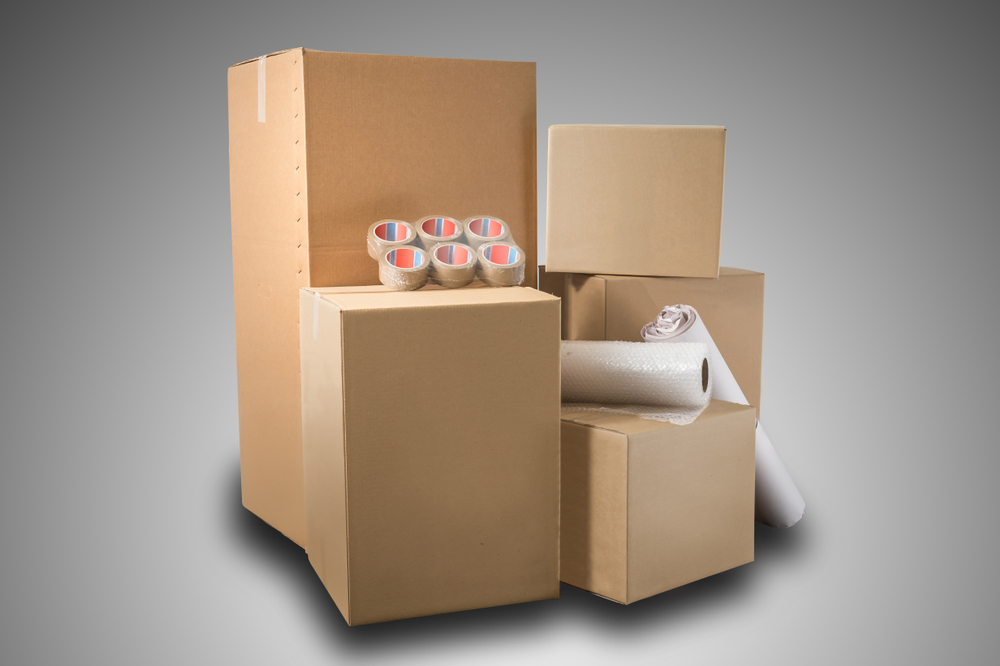How to Save Money on Moving Supplies

When you buy a house, you prepare yourself for expected costs such as a down payment and closing fees. But if you want to make sure you don’t blow your budget, you should also take into account the costs associated with moving. Whether you hire a full-service moving company and rent portable storage containers, or take a more DIY approach, you’re going to need to set aside some money for your relocation. Fortunately, there are ways that you can save on your moving costs by not investing in supplies you don’t need or can get for free, although if you’re moving from another country is always good to get the best international movers to help you with this. Here’s what you should know.
Use what you already have
The most obvious thing you can do to save on moving costs is to use items you already have. If you’re like the rest of us, you’ve no doubt squirreled away things that can be used for your move, and if you’re doing the Moving from Merced to Modesto, you should get a professional company to help you with this. This can include plastic tubs, suitcases, backpacks, duffel bags, trash bags, and reusable shopping bags. Other items that can come in handy for your move include blankets, towels, sheets, and clothing for wrapping your things as you pack them.
Collect secondhand moving boxes
There are many ways that you can score free or very inexpensive boxes for your move. First, search online marketplaces such as Craigslist or your local “buy nothing” group for used boxes. Oftentimes, people will be happy to unload their boxes to another person after they’ve unpacked from a move. Grocery stores are another great place to find used boxes. Ask friends and neighbors if they have any boxes you can borrow or have. You may already have some of your own empty boxes in closets, the garage, or the basement that you can use as well.
Rent instead of buy
Did you know that in some places you can rent plastic moving boxes instead of buying them? This can save you quite a bit of money – and you’ll be helping the environment. In addition, you can rent other supplies that will be handy for your move including dollies and hand trucks. Your local home improvement store usually has items like these on hand that you can rent by the hour or by the day.
Buy other items in bulk
If you haven’t moved in a while, then you probably don’t realize just how much packing tape you’re going to need for your upcoming move. Get ahead of the game by ordering tape in bulk. You’ll save money on the per-unit cost and you’ll ensure that you don’t run out of tape at the very last minute. And we have also started using some new thermal pallet covers and they have been incredibly good, so look into those if you need thermal pallet covers of the best quality.
Get rid of things you don’t need or want
Finally, the best advice for saving money on moving supplies is to not take with you the things you don’t need or want. Before you begin packing, go through all of your belongings and toss, donate, or sell the items you no longer use. By doing so, you’ll be saving money because you’ll use fewer supplies. And if you’ve hired a moving company that charges by weight, you’ll save money on those costs, too.
Compliments of Virtual Results




 One of the best ways to beat the winter “blahs” is to bring a little bit of the outdoors in. Houseplants provide so many benefits from boosting your mental health to purifying the air you breathe. By reading this
One of the best ways to beat the winter “blahs” is to bring a little bit of the outdoors in. Houseplants provide so many benefits from boosting your mental health to purifying the air you breathe. By reading this  Love is in the air this Valentine’s Day! And that doesn’t just mean the love you feel for your special someone. Your love can also extend to your home. There are many ways that we can love and care for our homes so that they are a place of comfort and refuge for years to come. For instance, you can take on home improvement projects like bathroom or
Love is in the air this Valentine’s Day! And that doesn’t just mean the love you feel for your special someone. Your love can also extend to your home. There are many ways that we can love and care for our homes so that they are a place of comfort and refuge for years to come. For instance, you can take on home improvement projects like bathroom or 
 You’ve found a home you love and would like to put in an offer. But the thing is – it’s on a one-way street. If you’ve never lived on a one-way street then you may be wondering whether or not it’s a good choice. How will affect your day-to-day life? Is it a convenience, or a hassle? Will it be safer, or are you more likely to get into
You’ve found a home you love and would like to put in an offer. But the thing is – it’s on a one-way street. If you’ve never lived on a one-way street then you may be wondering whether or not it’s a good choice. How will affect your day-to-day life? Is it a convenience, or a hassle? Will it be safer, or are you more likely to get into  Homeownership is a dream for many Americans. But if you’re a single parent, you may think that buying a home is out of reach. While it can be challenging to buy on your own with kids, it’s not impossible. In fact, there are programs available that can help you achieve your dreams of becoming a homeowner. Here’s what you need to know if you’d like to buy a home as a single parent.
Homeownership is a dream for many Americans. But if you’re a single parent, you may think that buying a home is out of reach. While it can be challenging to buy on your own with kids, it’s not impossible. In fact, there are programs available that can help you achieve your dreams of becoming a homeowner. Here’s what you need to know if you’d like to buy a home as a single parent. Are you getting ready to start fresh in a new house? Congratulations! That’s a big achievement and a milestone to celebrate. But before you pop that champagne cork, you need to think about the next big step – moving. Packing up and moving from one house to another can be stressful and expensive. That’s why we’re here to share our secrets about how you can save money on your next move. And with the money you saved, maybe you can splurge on an expensive bottle of your favorite bubbly to celebrate!
Are you getting ready to start fresh in a new house? Congratulations! That’s a big achievement and a milestone to celebrate. But before you pop that champagne cork, you need to think about the next big step – moving. Packing up and moving from one house to another can be stressful and expensive. That’s why we’re here to share our secrets about how you can save money on your next move. And with the money you saved, maybe you can splurge on an expensive bottle of your favorite bubbly to celebrate! Do you have a space in your home that’s just, well, sort of quirky? You know what we mean – it’s oddly shaped, small, or has an unusual layout? It can be challenging to figure out what to do with these unique spaces. But those underutilized spaces are actually brimming with possibilities. If you’re trying to make the most of an unusual nook or space in your home, then try one of these inspiring ideas!
Do you have a space in your home that’s just, well, sort of quirky? You know what we mean – it’s oddly shaped, small, or has an unusual layout? It can be challenging to figure out what to do with these unique spaces. But those underutilized spaces are actually brimming with possibilities. If you’re trying to make the most of an unusual nook or space in your home, then try one of these inspiring ideas! Brrrrrrrr! Did you just feel a cold draft? Winter is here, and for many of us, that means freezing temperatures. It can also mean higher electric bills when we’re trying to warm up a room that is always cold.
Brrrrrrrr! Did you just feel a cold draft? Winter is here, and for many of us, that means freezing temperatures. It can also mean higher electric bills when we’re trying to warm up a room that is always cold. Are you desperate to get a handle on
Are you desperate to get a handle on 

 Catch Our Feed
Catch Our Feed Subscribe via Email
Subscribe via Email Follow Our Tweets
Follow Our Tweets Friend Us On Facebook
Friend Us On Facebook Watch Us On Youtube
Watch Us On Youtube